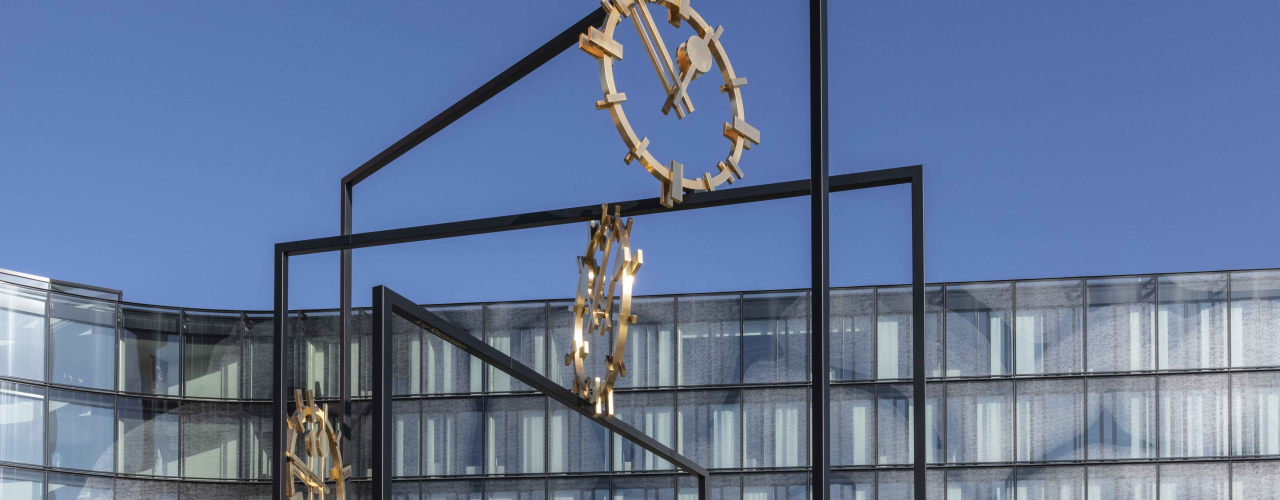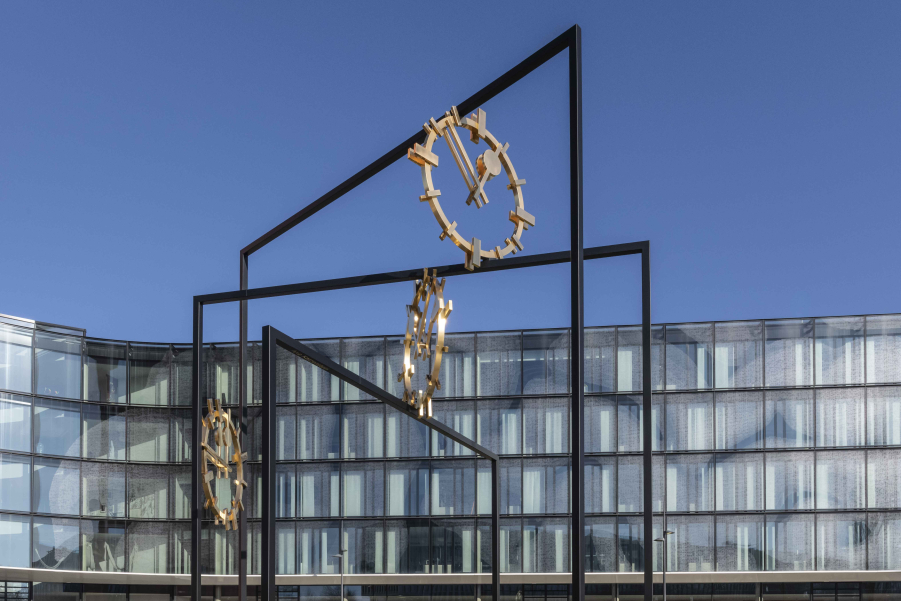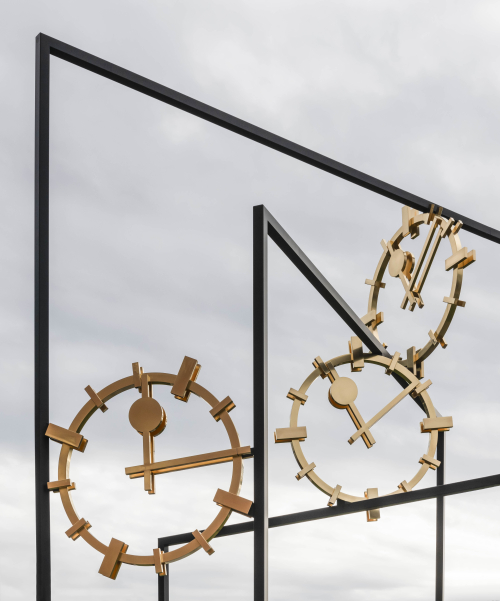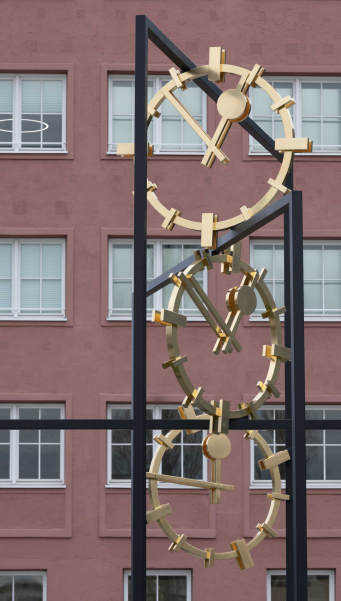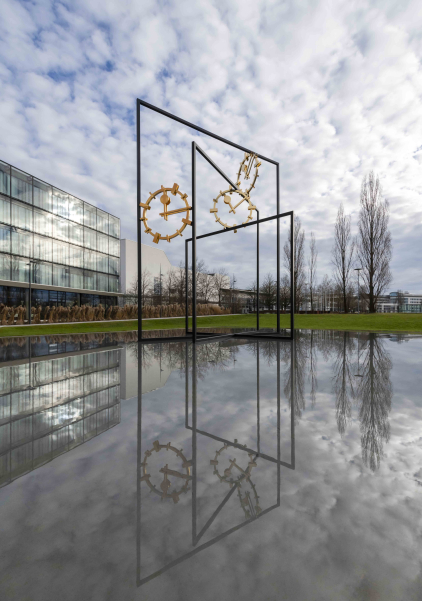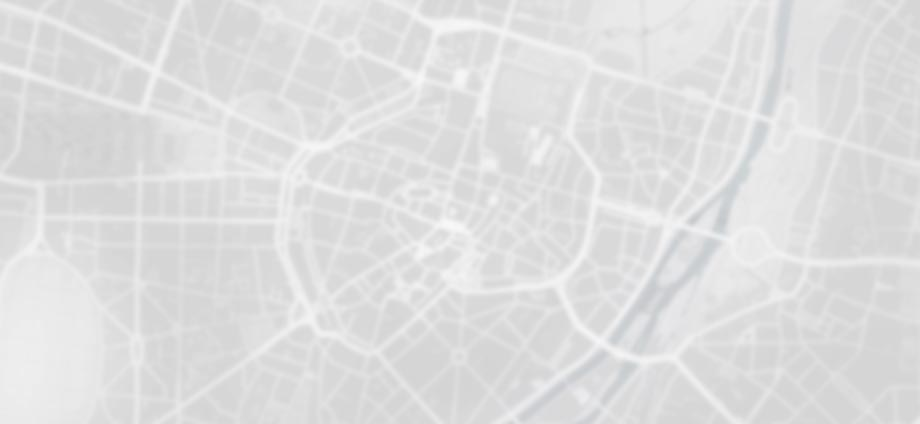On 10 February 1970, three armed members of a Palestinian terrorist organisation attempted to hijack an El Al plane at Munich Airport, located at that time in the district of Riem.
The Israeli-German passenger, Arie Katzenstein, was killed when he threw himself, quick-wittedly, on a hand grenade to shield others. The flight captain, Uriel Cohen, fought off the attackers in the airport building.
The hijack was foiled. Eleven other people, however, were injured, some of them seriously, by the terrorists’ use of guns and grenades.
The headquarters of the company Brainlab AG is now located on the site where the assault took place. Since 2025 the City of Munich and the company have been commemorating the victims and all those affected by this act of terrorism with a memorial sculpture by the artist Alicja Kwade.
10 February 1970 was one in a series of targeted attacks carried out internationally on Israeli citizens and Jewish institutions in Munich and elsewhere in Germany.
The central component of the publicly accessible memorial site is the 8.3-metre-high metal sculpture by Alicja Kwade. The artist picks up on the explosive devices’ detonation times that were calculated at a later date. Gold-plated clock faces mirroring that on the former airport tower are enclosed by three steel frames. They are intended to provide a three-dimensional rendition of the temporal dimensions of the attack and its impact and to make these tangible. The work also references the gaps and fragments in people’s memories and the clarification process. The ensemble incorporates a bilingual information board.
Alicja Kwade is one of the most renowned contemporary artists internationally. Works by the artist who lives in Berlin can be found worldwide. Among other projects, she designed the roof garden at the Metropolitan Museum of Modern Art in New York, participated in the 57th Venice Biennale in 2017 and took part in the Public Art München programme in 2020–23 with the work ‘Bavaria’. Alicja Kwade’s works often take scientific and philosophical discourses as their starting point and explore the question as to how we, as a society, perceive reality.
Alicja Kwade, born in 1979 in Katowice, Poland, lives and works in Berlin.
